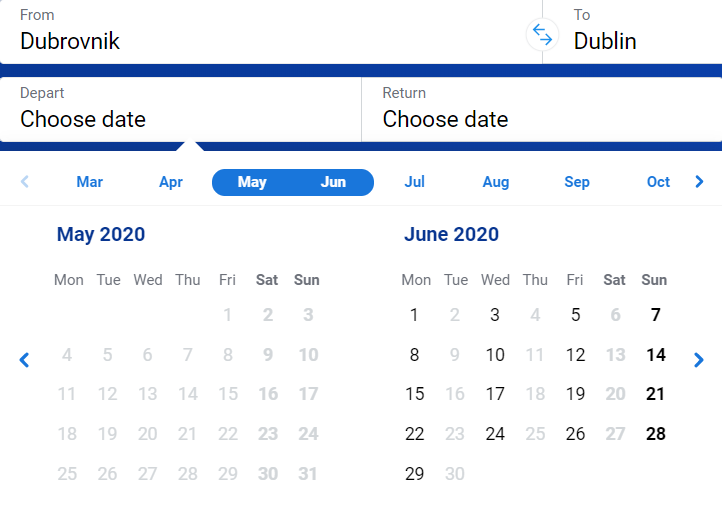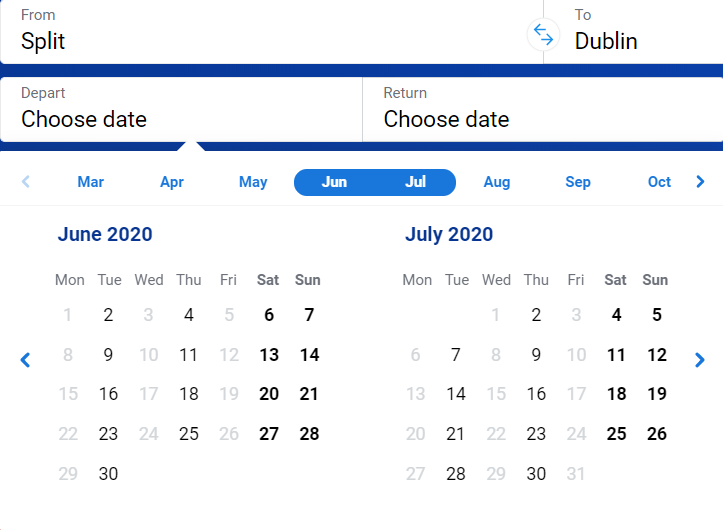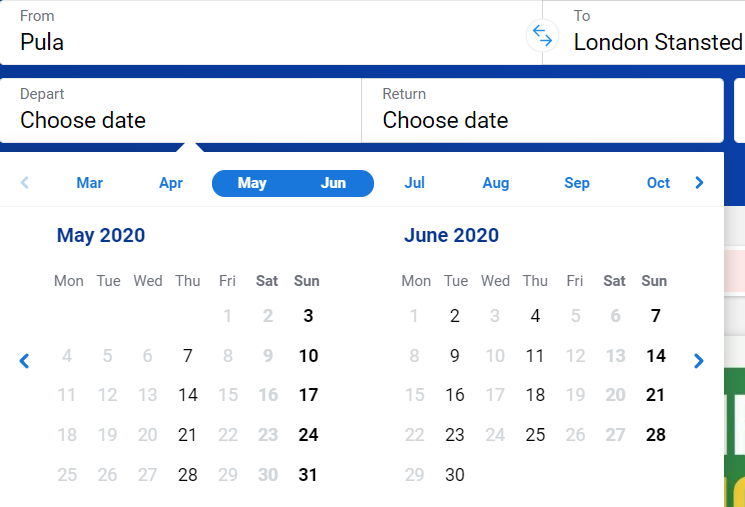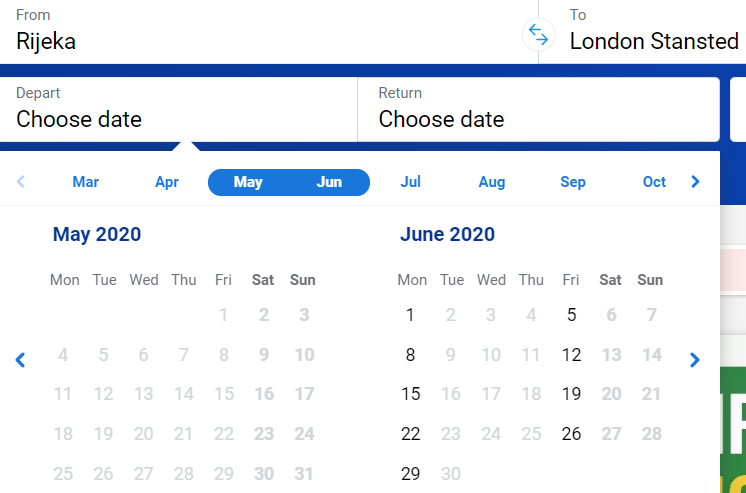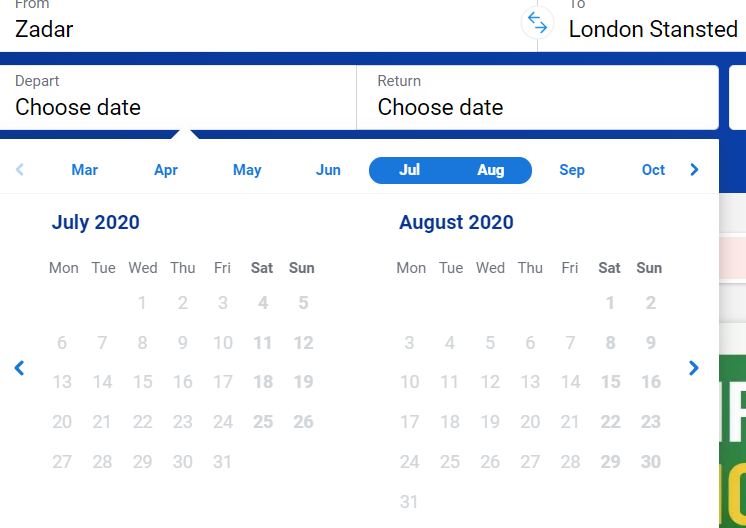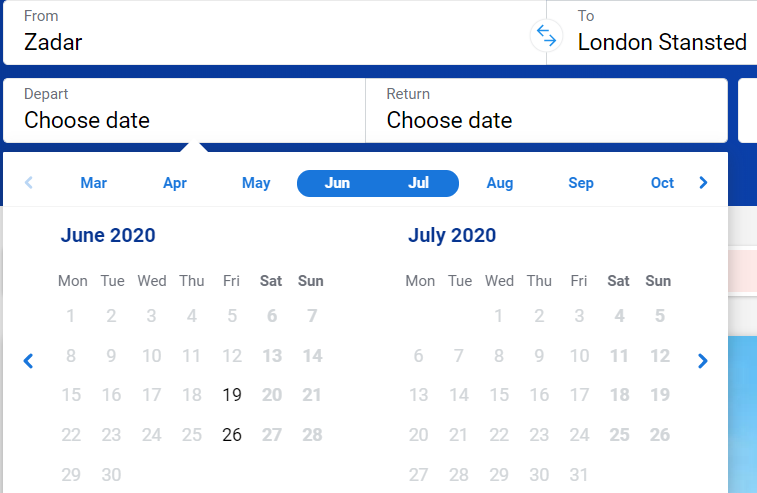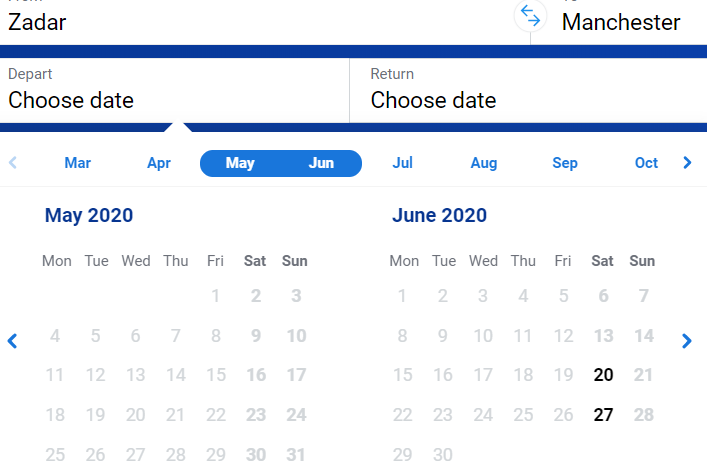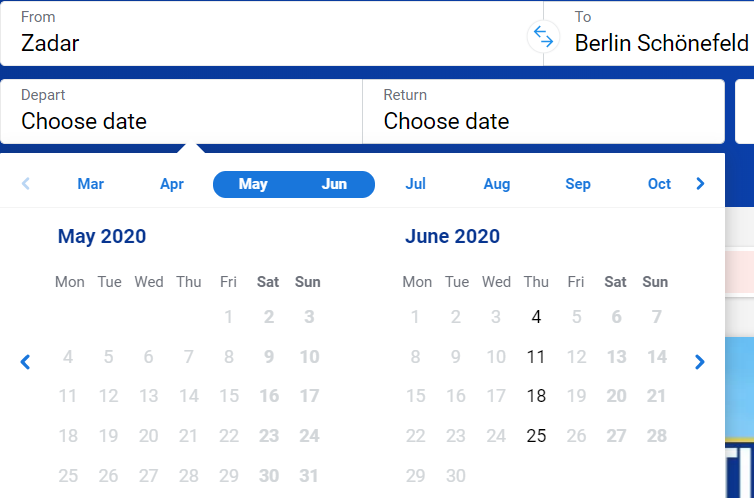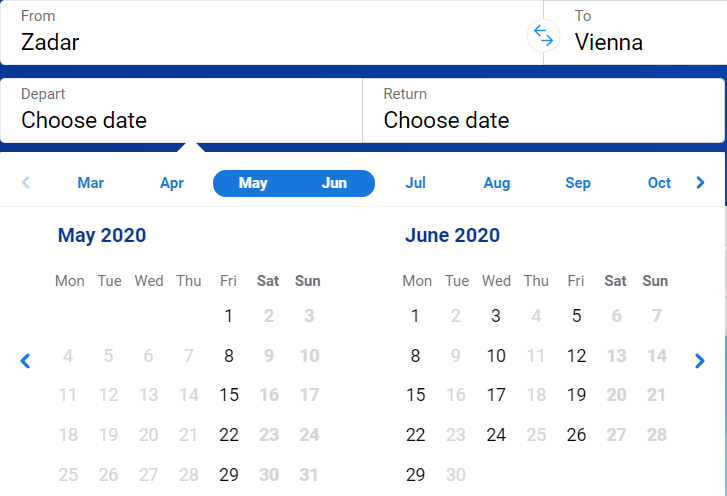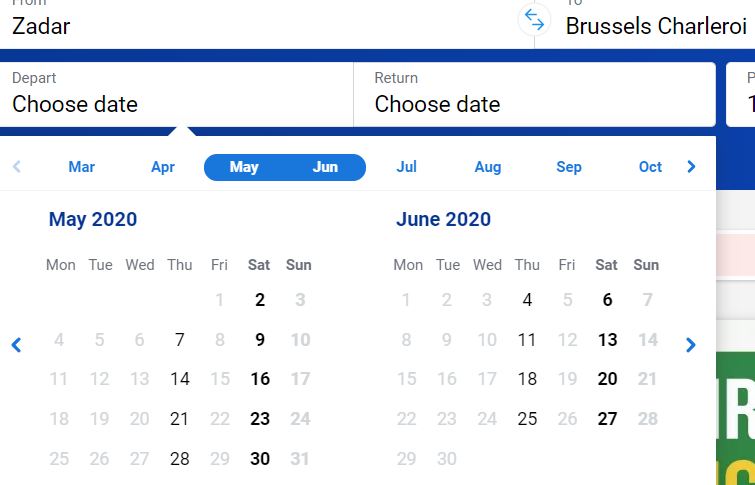'Za Krizen' on Hvar Overcame Fascists, Tito, Sinai Desert, But Will It Beat Corona?
March 21, 2020 - It is a UNESCO tradition which has taken place each year for 500 years despite the challenges of fascism, socialism and the Egyptian desert. But will Za Krizen 2020 beat the coronavirus?
When the coronavirus spread throughout Europe, there was much talk about banning events and social gatherings. Most were focused on rock concerts or Premier League matches, but my mind turned to something a little closer to my heart. If this event were cancelled due to COVID-19, what a statement for history! For this event has been challenged many times before, in different trying historical circumstances. But it has always taken place each year at 22:00 on Maundy Thursday on a beautiful Dalmatian island.
Every year. For 500 years. Without exception.
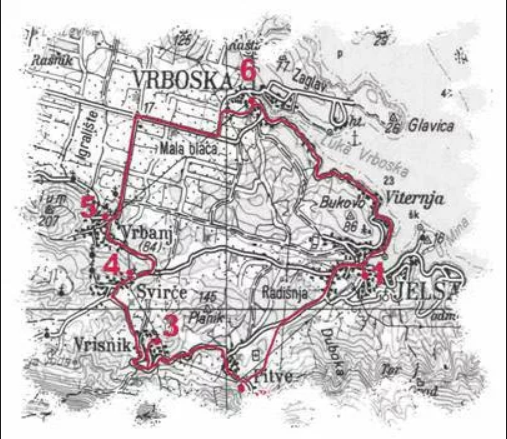
'Za Križen' (literally 'Behind the Cross') is a religious procession which is one of the most important events in the annual calendar of the people of central Hvar. At 22:00 on Maundy Thursday, a barefoot crossbearer, each from the six communities of Jelsa, Pitive, Vrisnik, Svirce, Vrbanj, and Vrboska, lead their acolytes and pilgrims on a 22-km procession of chanting, prayer and reflection through the other communities, before returning to their starting point around 07:00 on Good Friday. Several thousand people attend the event and walk through the night for this traditional procession, which was awarded the status of intangible UNESCO heritage back in 2009.
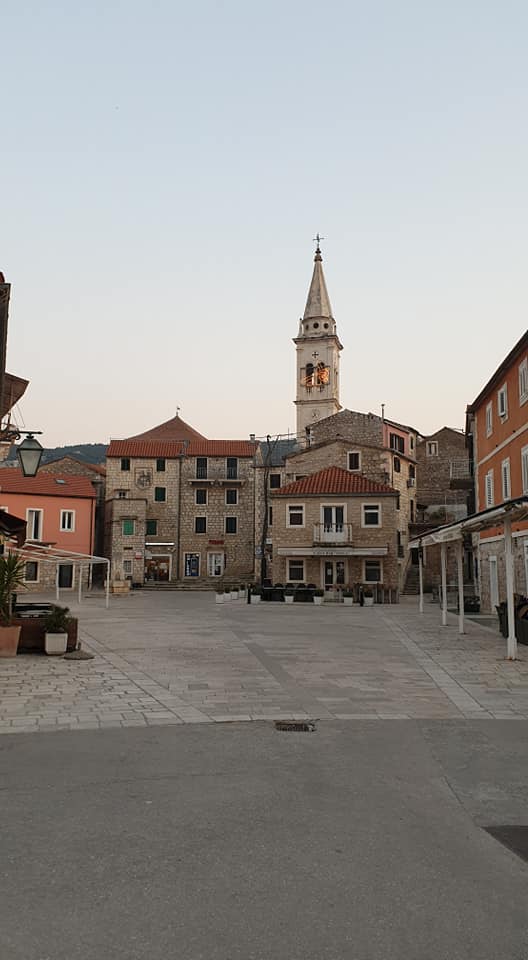
It is a procession which is steeped in history, heritage and pride. It is a great honour to carry the cross, and it is said that parents put their new-born babies on the waiting list for the honour. One of the best videos I have ever seen about the traditions of Hvar was Maja Zrnić's piece for Hvar TV following a Pitve crossbearer, Ivo Mileta, behind the scenes.
A really fascinating snapshot of a unique tradition which spans five centuries. The Italian fascists tried to ban it in 1943, but Za Krizen took place, albeit on a reduced scale.
In 1944, Za Križen took place in the Sinai Desert in Egypt, in a refugee camp in El Shatt. as refugees from Hvar insisted on honouring their traditions - you can read more about the incredible story of Dalmatian refugees in the Sinai Desert here.
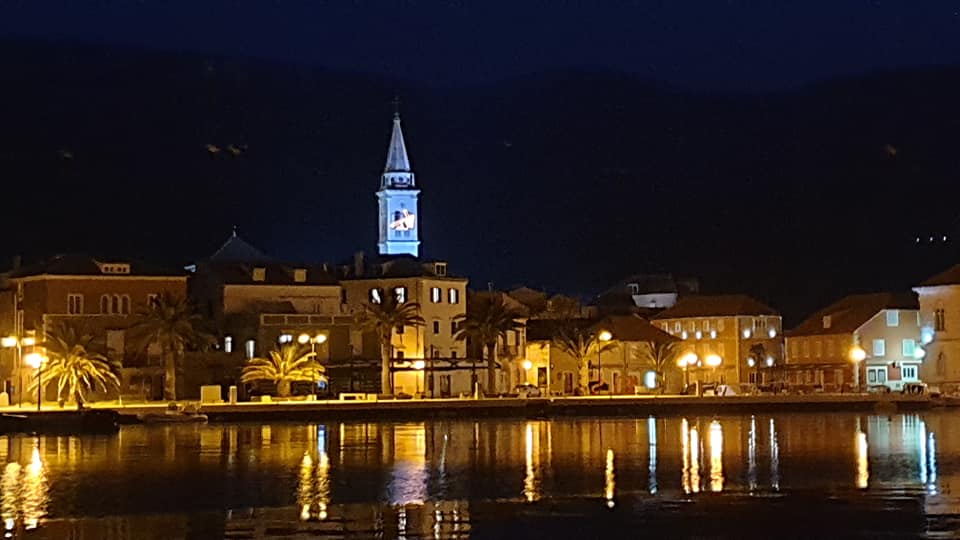
And, as the Pitve crossbearer in the video above shows, religious processions during the Tito socialist era were hardly encouraged.
Za Križen has overcome all these obstacles over its 500-year history. I managed to capture all six processions at various times on the night last year here.
But will Za Križen be able to overcome perhaps its biggest challenge yet - COVID-19?
With the ban on public gatherings and ferry transportation restricted to those with island IDs, it is clear that the many Hvar people living on the mainland will not return, and that there will be few to no pilgrims following the cross. But will the event take place?
Perhaps. And if it does take place, it will be one of the few events to actually be happy in these crazy times.
My understanding is that the current thinking is that the six crossbearers will definitely go, with perhaps a couple of assistants each, but nothing more. The mass gathering at the start and finish will not happen, and so it will be a rather curious affair for those who traditionally take part. The Vrboska crossbearer has apparently arrived from Canada, where he now resides, while the Pitve crossbearer Roman Radonić is the nephew of the youngest ever crossbearer, Sveto Marijan back in 1953, aged just 13.
It will undoubtedly still be a very special night, although - like everything else in the world right now - different.
I will bring you as much coverage as a responsible socially distanced journalist can. To learn more about the Za Krizen UNESCO tradition, check out the official UNESCO video below.
Diary of a Split Tour Guide in the Age of Corona - Part 1
March 21, 2020 - After a long break, TCN is delighted to welcome back one of our most popular writers from the early days - Ivica Profaca, with a new series called Diary of a Split Tour Guide in the Age of Corona.
It was supposed to be a season to remember. the first bookings for 2020 arrived as early as July 2019, and by the end of January, there were some fifty dates marked in my calendar.
And then, it happened. At first it was nothing really serious looking from our part of the world. News about the coronavirus broke in Asia, but most of my fellow guides - including me - were still going like "Oh, there might be some problems, but fortunately I don't have that many Asian groups". As news spread, especially with the virus coming much closer to our European neighbourhood, bookings just stopped. It wasn't like they faded out gradually, but at one point I (and others) realized that it had been some time since we had taken the last reservation. In February, there were still no cancellations, I even had two or three jobs, but e-mails and phones went completely silent. As time went on, silence was broken in a way nobody wanted, but we all expected. Usually, the message would start with "Unfortunately, due to the coronavirus situation, our guests decided to...", and then there were two possible sentence endings. The first one is relatively better, saying that they decided to postpone their trip, usually to September or October. The second one was "cancel".
Well, it will still be a season to remember, for different reasons. If it can be called a "season" at all.
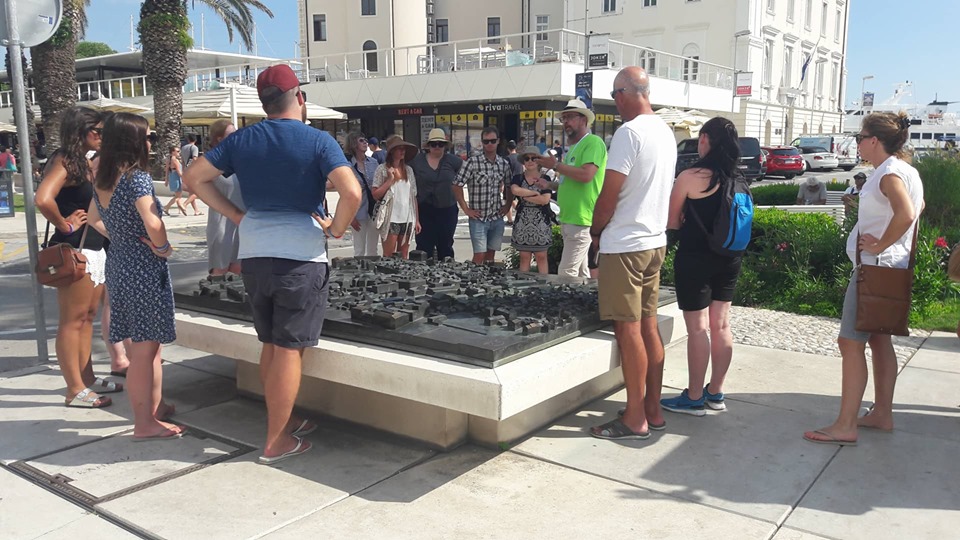
By now, it's clear that tourism as an industry has been put on hold in the whole world, leaving many people - especially those working on their own, as freelancers - without almost any income. Compared to getting sick and even dying, it is a lesser evil. However, the question remains - when the virus finally leaves us alone, what will happen? Will we ever travel on a scale we got used to? There is no answer, just waiting. There is no comfort in that, but it is a global issue. There is nobody to blame, it just happened. You want an example of just how global it is? This year I planned to do something on my travel bucket list, walk the Hadrian's Wall Path in northern England. I booked it through a small English family agency, they did an excellent job sorting the whole itinerary out. Now, in the strange version of a domino effect, if I don't have my usual quantity this summer, I won't be able to go there, damaging someone else's business. I really don't remember any other situation when we were all in the same shoes, anywhere.
While it still looked like there might be a season, I was preparing for it, like any other guide I know in Split and Dalmatia. Recently, I got a guiding license for Šibenik-Knin county, broadening my market. I have agencies I work with, but I also approached some others, too. With a little help from dear colleagues mediating, contacts and some nice deals were made. Furthermore, I turned even more to online platforms, after AirBnB Experience proved to be a success. In addition to my web site, now I also have tours on Trip Advisor and Viator. I applied to different guiding services, created new products, etc. My whole winter was dedicated to making this year as good as possible.
Everything is now on hold, in some cases literally, and the city looks like a ghost town with everything but food stores closed. For example, AirBnB Experience has stopped all booking until April 3, or until further notice. All flights are cancelled, and the low-cost season is postponed. easyJet, as the biggest operator flying to Split, has grounded their planes even before they even started coming, on March 24. Most cruise companies, like Costa, cancelled their trips, too. Knowing that most of ships come to Split from Venice, it makes sense, and it's questionable when they will resume their operations, with the current disaster still ongoing in Italy. It's not connected with the guiding job, but for tourism in Split, especially accommodations, another blow might come with possible cancellation of Ultra Europe. To be honest, knowing how many people arrive for that event - many of them caring about nothing but the party - maybe it would be best if Ultra is cancelled.
So, that's the current situation. While I'm writing this on March 21, the national crisis headquarters has announced that in the last 24 hours there were more about 80 new cases of COVID-19 in Croatia, and nobody knows where it will stop. This is the moment is to save lives, and to obey orders to contain the virus as much as possible. If it's possible.
However, the future without coronavirus is coming. How soon? Optimistic versions say sometime from July or August, but it's impossible to predict. Many guests - especially those coming on small, private tours - have postponed their trips to September or October. Fortunately, that means that my calendar for that part of the year is filling up. There is still a chance that the situation won't get better until then, but we hope it will. Talking with other guides - it always helps to be in touch with those in the same situation - the usual prediction is that resumption will come at some point, but hardly before August.
Actually, when I think about this situation, there is one thing I can't imagine what it will look like. What has to happen that someone in charge will be able to say "OK, we're fine, go fly, drive, sail, travel"? Even when it happens, how long will it pass before people dare to sit on a plane, or board a ferry without holding social distance to everyone else?
In the meantime, besides taking all precautions not to get infected, the economy is collapsing right in front of our eyes. As a freelancer, and small business owner, I might expect some of the measures announced by the Croatian government will apply to guides, and other similar jobs. Those measures are not perfect, but anything might help, when it comes. Right now, looking to the near future, day-to-day survival is the name of the game. Personally, I can still count on some writing and other jobs to fill up the family budget, many others have only guiding as a source of income. If this is prolonged, we will really talk about survival.
(To be continued)
We will be following Ivica Profaca's journey through the rocky weeks ahead.
If you find yourself in Split, or are planning a post-corona visit, check out his range of tours on his website - families, look out for the kids tour of Diocletian Palace. It will not only entertain your kids while allowing you to absorb this unique UNESCO World Heritage Site, but it will bring out the inner child in you too. Learn more about it here.
COVID-19 in Croatia: New Zagreb Travel Restrictions Explained
As Index writes on the 21st of March, 2020, the Civil Protection Headquarters have addressed the public once again on the situation with COVID-19 in Croatia.
"We've entered a phase where the number of patients has increased in an extremely short period of time. This indicates that we're facing an upward trajectory of the epidemic curve, which can only be stopped by following the recommendations of the Civil Protection Staff," warned Health Minister Vili Beros.
He warned that some residents have not been adhering to the recommendations and instructions for self-isolation, and that there were some who didn't follow the recommendations of not gathering in public places.
''This is not good and will not help curb the epidemic,'' Beros said, urging all of Croatia's residents to please follow the recommendations once again.
"It's okay to go outside, but you can't be in close contact," Beros explained.
"Self-isolation measures must be undertaken by those who are in contact with the sick or those who come from countries where the infection is," Bernard Kaic said.
"Over time, it may turn out that Croatia is facing a huge risk, so it's important to distance yourself from everyone," Kaic explained.
Health Minister Beros said that for all of us, self-isolation was something we've never faced before. That's why there is a new set of directions to follow for healthcare and ambulance workers.
There are no new coronavirus patients needing to be on respirators.
Alemka Markotic of the ''Fran Mihaljevic'' Clinic for Infectious Diseases in Zagreb said that the good news that is there are no new patients needing respirators, although there are still unfortunately new potential candidates.
She reiterated that all precautions are to be taken very seriously because if we don't adhere to the rules, we're putting everyone at risk. She thanked everyone who provided assistance and donations.
Krunoslav Capak of the Croatian Institute for Public Health said that curve has gone uphill rapidly and how steep it is still yet to rise depends solely on us and our behaviour. He then thanked all of Croatia's dedicated health care staff and all other volunteers.
Only those with passes will be able to take city buses.
Bozinovic said long-distance traffic decisions are already being implemented.
"With regard to public urban transport, we've decided to suspend the trams and the buses will all be disinfected. We'll also have to see what activities are deemed necessary so that only those who need the transport for normal life can enter the buses. Others will not be allowed to enter the buses. Please reconcile with that fact,'' Bozinovic said.
"Inspectors have closed eight or six cafes today. That's just outrageous," Bozinovic said. He noted that the police are using their powers and are removing people from public spaces as part of the decision to try to halt the spread of COVID-19 in Croatia.
"They're doing that with a megaphone, with sounds and with light signals. If that fails, the police will use other powers, which means fines of between 5 and 10 thousand kuna," Bozinovic said.
On one island, a citizen attacked a police officer.
"We have an example from an island where someone attacked a police officer, well... we will not allow this," Bozinovic watned.
"Everybody has to understand that this is not a regular situation,'' he added, saying that instructions on how people should behave indoors will come.
"We'll also use the services of tele-operators to send messages to everyone about how to behave in different situations, and today there were irresponsible people who spread messages of panic over social networks.
"We have hundreds of people who have violated self-isolation and they will be punished for it," Bozinovic said, once again urging citizens to follow all instructions - namely hygiene procedures and staying home.
"The reason for going outside should not be just for socialising and talking, it won't be like that while these measures are in place," Bozinovic said.
The patients with the worst symptoms will be dealt with at the Zagreb hospital KB Dubrava, and those who are not as bad will be treated at the Zagreb Arena, where beds have been set up, explained Beros.
Make sure to stay up to date with our dedicated section for all you need to know about COVID-19 in Croatia.
Milanović: No Need to Declare State of Emergency
ZAGREB, March 21, 2020 - Croatian President and Armed Forces Supreme Commander Zoran Milanović on Saturday toured a medical camp outside Zagreb's Dubrava Hospital, saying that at present there is no need for a lockdown or for declaring a state of emergency during which he and the prime minister would be making decisions together.
As for the possibility of transferring some of the parliament's powers onto the government, which was discussed at a meeting of the ruling coalition and the parliamentary Opposition earlier this week, Milanović said that he had not seen that proposal and did not perceive it as being to that effect and that he believed that under the Constitution it was not possible to transfer the parliament's powers onto the government.
"Should there really be a need for harsh, extreme measures such as lockdown, I guess that will include the suspension of the parliament's work, which is what I would like to avoid," Milanović said, stressing that he and parliament were there to care about others and not vice versa.
Responding to a reporter's remark that some MPs had suggested declaring a state of emergency to pave the way for the president and the prime minister to start making decisions together if the situation escalates, Milanović said that that was unnecessary as long as the parliament worked.
He repeated that he did not see a need for a lockdown, stressing the importance of behaving responsibly.
There is no need for extreme measures and cooperation with the government, which has been doing its job well for the most part, is good, Milanović said.
Commenting on the medical camp set up outside the Dubrava Hospital by the Croatian Army, Milanović said that he hoped a situation would be avoided in which its maximum capacity would have to be tested.
Answering reporters' questions, Milanović said that at present the army should not be called in to help police deal with breaches of self-isolation rules.
"I am not in favour of rushing into calling the army in... your question refers to a complication which I find hard even to imagine," he said.
We have learned the lesson, and we know some things now, he said, underlining the importance of keeping interpersonal distance and socialising as little as possible.
Milanović would not draw parallels to the situation in Italy, where the coronavirus epidemic has escalated suddenly, but noted that the situation could get complicated.
Commenting on photos of Zagreb city parks, showing people playing cards in the open with children jumping around, the president said that it was a job for the police, not the army, to warn them to move away from one another.
He said that he would probably not be the one to make a decision on a lockdown but that he could support it if it was adopted.
As for the dynamic at which the national civil protection authority was introducing restrictions on social contact, Milanovic said that he supported it.
The president also said that public sector wages should not be cut.
"I am a politician, you can cut my salary as a symbolic example but reducing the minimum wage in the public sector means death to the system," Milanović said, adding that whoever had made that proposal was not very clever.
"You can reduce the president's or the prime minister's salary, but you cannot do it to the health minister because at this stage he works more than I do," he said.
Commenting on donations of protective equipment from the Emirates, he said that any such donation was welcome even though Croatia was capable of producing masks, but added that respirators could not be manufactured by just anybody.
Milanović visited the medical camp outside the Dubrava Hospital in the company of Defence Minister Damir Krstičević.
More coronavirus news can be found in the Lifestyle section.
Police Union Calls on Government to Dismiss Demands for Public Sector Wage Cuts
ZAGREB, March 21, 2020 - The SPH police union on Saturday called on the government and Ministry of the Interior to dismiss demands for public sector wage cuts amid the coronavirus epidemic, which, it said, are being made by "certain irresponsible politicians."
"At a time when some of the public sector employees, including health workers and police, are facing the most difficult period in their career, demands for cutting their wages only cause unease among them," the union says.
Police officers, who are normally faced with various risks in their work, have accepted the additional risk of infection and will carry out all tasks to be assigned to them in the coming days but they do not deserve "calls by certain politicians... for a reduction of their wages," the union said, calling on the government to dismiss such demands.
More coronavirus news can be found in the Lifestyle section.
SDP: MPs, State Officials Should Work for Minimum Wage for 3 Months
ZAGREB, March 21, 2020 - The opposition Social Democratic Party (SDP) requested on Saturday that MPs and other state officials, except Health Minister Vili Beroš, work for a minimum wage for the next three months in solidarity with the many citizens being affected by the coronavirus crisis.
The amount saved should go to businesses so they can keep jobs and pay a minimum wage to those most vulnerable.
"We need every kuna for the socially vulnerable, the sick, the functioning of healthcare and the payment of pensions, for helping the shaken economy," SDP president Davor Bernardić said.
He proposed that part of the money be allocated as bonuses to doctors, nurses and other hospital staff "who treat citizens from this disease."
Bernardić said that ten days ago the SDP proposed more rigorous protection measures and presented 15 measures to cushion the fallout on citizens and the economy.
He said that although the government adopted some of those measures, implementation was late. "Citizens and entrepreneurs still don't know what to do... many people are losing their jobs, incomes for their families."
Bernardić again warned about those using the crisis to raise the prices of food and medical equipment, appealing to the authorities to immediately start dealing with that.
More coronavirus news can be found in the Politics section.
VIDEO: Strict Coronavirus Measures: Police Ask Zagreb Citizens to Leave Streets
As Index writes on the 12st of March, 2020, people have sent in various videos showing how the Croatian police are asking people to leave the streets and go home from their cars amid the coronavirus crisis.
The police say they are acting on instructions. When asked directly why they were shouting about quarantine being on its way, the police said they would contact Index about it.
The headquarters responsible for the new very strict measures in Croatia have stated that currently there is no quarantine in force, but that the police are merely helping people to comply with the coronavirus measures and the multiple warnings that have already been issued, and as such are taking new stringent measures to make sure people act accordingly.
Given the accelerated spread and increased risk of the transmission of coronavirus, an anti-epidemic measure of the severe restriction of people on the streets and in other public places where a large number of persons can move around is being introduced for a period of thirty days.
''The Civil Protection Headquarters of the Republic of Croatia, on the 21st of March 2020, adopted an official decision on the measure of stopping people gathering on streets and in other public places. This decision applies to streets, squares, waterfronts, parks and all other public areas where a large number of persons can move around.
The civil protection staff and the police directorate shall ensure the implementation and supervision of the implementation of the measure referred to in this decision. This decision shall enter into force on the day of its adoption and shall be published in the Official Gazette (Narodne Novine),'' the headquarters announced.
Watch the video below of Zagreb police asking people to leave the streets and please go home:
Make sure to stay up to date with our dedicated section for rolling information in English as well as regular updates on travel for all you need to know about coronavirus in Croatia.
Ryanair in Croatia: Almost Total Zadar 2020 Flight Cancellations But Split, Dubrovnik OK?
March 21, 2020 - What is happening with Ryanair in Croatia? So many flight cancellations to Zadar, but not other coastal destinations. And what about the Hideout Festival?
The situation regarding flights with Ryanair in Croatia has been taking up an ever larger part of my inbox in recent times. Emails such as this have become commonplace:
Any clue why ryanair flights to zadar in june and july got cancelled overnight? Theres still several months to go... Any advice you could provide is greatly appreciated
Hvala puno!
I decided to look into the situation, and what I found was VERY unusual.
The announcement that Ryanair is grounding most of its fleet on March 24 due to the coronavirus situation was a big shock, but there seems to be an interesting sub-story developing with Ryanair in Croatia.
We have covered flight cancellations with Ryanair in Croatia already due to COVID-19, and the flight situation has been constantly updated in our regular Croatian travel advice - here is today's.
This was followed on March 13, 2020 that Ryanair was postponing its planned base in Zadar until 2021, as well as cancelling lots (but not all flights).
With the global situation, it is understandable that Ryanair in Croatia would be operating at reduced capacity, but cancelling flights in July? It seemed a little odd to me.
"Given the overall situation, it is quite certain that the flying season will not start as planned. When it will start, it is difficult to estimate at the moment, which is why Zadar Airport is unfortunately forced to postpone hiring of our seasonal staff until further notice," Zadar Airport spokesperson Nikola Barac told Zadarski List when sent a seasonal employment media request. This has resulted in the postponement of the recruitment of 130 seasonal staff at Zadar Airport.
Asking around, I was told that ALL flights to Zadar with Ryanair were cancelled by local sources. Really? I found that quite incredible to believe. What I found was all the more bizarre, according to the online booking system on the Ryanair website.
Zadar is the main market for Ryanair in Croatia, indeed it was the entry point for low-cost flights when the Irish carrier entered the Croatian market in 2007. But Ryanair has expanded to other airports, albeit with more limited services. Dublin to Dubrovnik looks fine at the moment from June 1.
As does Dublin to Split. Ryanair started flights to both Split and Dubrovnik only last year and currently offer only Dublin to both, as well as Vienna to Dubrovnik, and Stuttgart to Split.
Things are looking good from London Stansted to Pula from early May.
And from London Stansted to Rijeka from June 1.
But London Stansted to Zadar in July and August?
In fact, there are only two flights currently bookable from London Stansted to Zadar for the whole of 2020.
What about flights to Zadar for the Hideout Festival on Zrce on June 21-25, 2020?
The Hideout Festival on Zrce Beach near Novalja on the island of Pag is scheduled to take place from June 21-25, 2020, coinciding with the only bookable flights from London to Zadar with Ryanair for the whole year.
Same story if you are coming from Manchester. Currently, the only two flights available for the whole of 2020 are dates either side of the Hideout Festival.
But if you are planning to visit Zadar from mainland Europe with Ryanair, there seems to be no problem. From Berlin, above, for example.
The Viennese can arrive from May 1, 2020.
And from Brussels, just a day later.
But from the UK, or Ireland - nothing currently whatsoever, apart from the Hideout Festival flights.
And of course, the big question is - when will this COVID-19 crisis all be over, and when will flights to Croatia resume?
Nobody knows for sure, of course, but perhaps there is a clue on the Ryanair homepage of one of the movers and shakers of European travel, with their most prominent advert, below.
If anybody has any concrete information with verifiable links to support the info, please contact me at This email address is being protected from spambots. You need JavaScript enabled to view it. Subject Ryanair, and I will happily update.
How do I get a Ryanair refund?
This is a question I am getting a lot as well, and I am certainly not the best person to ask. It will involve filling in a Ryanair refund form, but for the latest information, check out the COVID-19 update page on the Ryanair website, which has the latest on refunds and disruptions.
You can keep track of the latest Croatia travel advice as part of TCN's ongoing coronavirus coverage in our dedicated section.
Split Police Patrolling Riva and Beaches, Marjan Closed: "Only Go Out If You Must"
March 21, 2020 - Split police are busy patrolling the city's most frequented areas on Saturday and are pleading for citizens to stay home during the coronavirus crisis.
Despite numerous recommendations from experts who have sent messages to stay home for days, many citizens have taken advantage of the crisis to enjoy the beautiful spring weather.
On Saturday, 168 coronavirus cases have been confirmed in Croatia, and according to scientist Igor Rudan, the real number may be ten times higher, reports Dalmacija Danas.
As of Wednesday, only grocery stores, bakeries, pharmacies, and those deemed necessary are allowed to work, and all children's playgrounds are closed as of Saturday. Saturday morning, the Crisis Headquarters decided on a new regime for maritime transport, while bus transport between cities was suspended entirely.
Interior Minister Davor Bozinovic said there was a “some kind of ban on movement in public areas". Citizens will not be physically removed, but police will warn and act in the event of disobedience. It is forbidden to move and hang out in groups in all public areas, and the police are strictly patrolling.
Marjan Forest Park was also closed and police visited Žnjan, Bačvice and the Riva and warned about the ban on movement in groups in public areas.
“Bene has been closed, and we have been instructed by the police to close Marjan as well, and to warn all passers-by that movement in this area is forbidden,” said the Marjan Primary School.
A spokeswoman for the Split police further explained the situation.
“We must all respect the decision of the National Headquarters who issued a recommendation not to hold public gatherings, including in public places. People should not gather in groups and police officers are patrolling and alerting citizens to return to their homes. We urge citizens to respect these decisions for your public health. Police will tour all frequently visited locations: Žnjan, Riva, Bačvice and other promenades. We appeal that only people who need it and who do the most urgent work go out in public. The police are doing this to protect all of us and public health. Let's stay home,” spokeswoman Antonela Lolic said.
Make sure to follow our dedicated section for rolling information in English about COVID-19 in Croatia.
To read more about lifestyle in Croatia, follow TCN's dedicated page.
Croatian Clubs in Corona Crisis: Will They Survive?
March 21, 2020 - The coronavirus crisis could see many Croatian clubs fold if they don't get the support they need.
The coronavirus pandemic is posing a serious threat to Croatian sport, reports Gol.hr.
There are alarming situations in many Federations that have already sought help from the Croatian Olympic Committee and the Central Sports Office. They are asking to establish some model of support so that the worst-case scenario does not happen - that clubs fold.
Sports around the world are particularly in danger because of the coronavirus crisis, as everything has come to a halt. Croatian federations and clubs have sounded the alarm, because if they don’t see support, we could easily see many Croatian clubs crumble. The Croatian Swimming Federation has already appealed to the Croatian Olympic Committee.
The appeal urges the HOO to try to find some model of co-financing for the clubs so that they are not extinguished. There are 57 swimming clubs in the Federation, and now they are left without the only source of income - membership fees.
Tomislav Družak, the head of the Central State Office for Sport, is aware that some of the funds that have been earmarked for competitions will not be spent, so they will be converted.
"As budget funds come in, we will we sort them out by federations while not being rigorous when it comes to controlling the justification of those funds," he said.
Taekwondo is also in big trouble. The European Championship, which was supposed to be held in Zagreb in May, has already been postponed, and only three Olympians are training due to the pandemic.
Football clubs are also having problems, and how the Croatian Football Federation will help them should be clearer next week.
"We will also ask for help from the state. Next week is a meeting with the Secretary of State, so we will see how we can help," said Executive Director of the Croatian Football Federation Marijan Kustić.
Of course, the health of every athlete is paramount, but we must look to the future, because if the state and umbrella sports institutions do not get involved, many clubs could crumble.
To read more about sport in Croatia, follow TCN's dedicated page.

